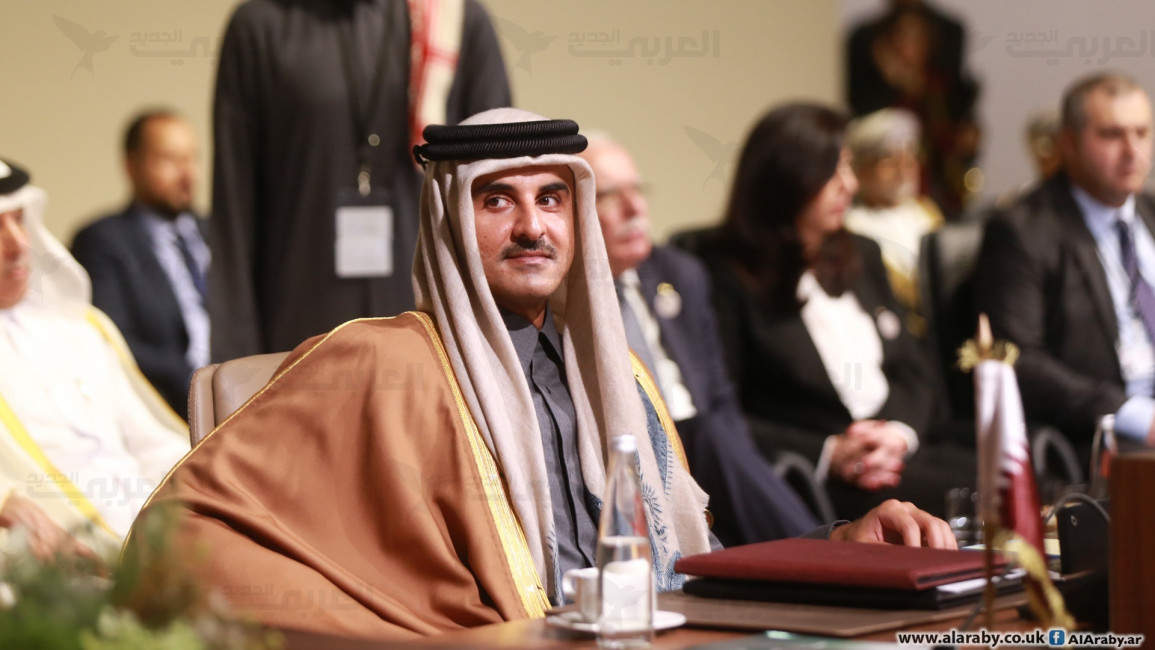Making a Levantine comeback: Qatar boost bonds with Lebanon with $500 million investment
Qatar is making a comeback in the Levant, with the Gulf state's emir visiting Beirut for an Arab summit boycotted by most Arab leaders and Doha announcing a $500 million investment in Lebanon's government bonds to support its ailing economy.
It comes a day after Qatar's ruler Sheikh Tamim bin Hamad al-Thani made a surprise brief trip to Lebanon where he met President Michel Aoun and took part in the summit of the Arab Economic and Social Development Summit (AESD).
The AESD was formed in 2009 as an exclusively economic and development conference that tends to involve the private sector, including banks, chambers of commerce, industry and agriculture.
Earlier this month, Lebanon's Finance Minister Ali Hassan Khalil was quoted by a local newspaper as saying that the country may restructure its debt, leading to sell-off in Lebanese bonds.
He later clarified that Lebanon is committed to paying back all maturing debt.
Read more: Lebanon's economy is not collapsing...but it is a 'zombie'
'Increasing soft power'
Lebanon is traditionally an arena for Saudi and Iranian influence and rivalry, but this has had a detrimental effect on the country's delicate politics, with both regional powerhouses seen as divisive.
|
Saudi Arabia traditionally supports Lebanon's Sunni politicians, led by Prime Minister-designate Saad al-Hariri, while Iran backs powerful Shia militant group Hizballah.
The two blocs maintain a delicate truce despite deep differences over the war in neighbouring Syria in which Hizballah has fought alongside Bashar al-Assad's regime, while Lebanon's Sunnis have been generally more sympathetic to the rebellion.
Qatar meanwhile has been one of the main backers of Syrian rebels trying to overthrow Assad.
Unlike Riyadh and Tehran, Doha's legacy in Lebanon is more neutral, having helped broker a landmark political accord that ended a long power vacuum in 2008. And in the wake of the 2006 Israeli war on Lebanon, Qatar was the leading donor for reconstruction efforts.
"It is certainly a move that will increase Qatar's influence and soft power again in Lebanon after it went down during the regional divergence with the Saudi and Iranian positions from the Arab revolutions."
The emir himself tweeted on Monday saying his decision to attend the summit "was natural and out of keeness for joint Arab action that the summit highlighted the dire need for against crises... Thanks to Lebanon's leaders and people for hosting it".
Motorcades were spotted in Beirut carrying slogans thanking Qatar for attending the summit.
One news headline even said: "Blockaded Qatar breaks Lebanon's blockade", in reference to both the Saudi-led blockade of Qatar and the boycott by Arab heads of state of the meet in Beirut.
 |
Syria's membership was suspended by the Arab League in 2012 over the brutal crackdown on protests |  |
Bargaining chip
Sheikh Tamim and the President of Mauritania Mohammed Ould Abdel Aziz were the only heads of state from the 22-member Arab League who attended the summit.
|
"We regret the absences of some brotherly kings and presidents who have their justified excuses," Lebanon's President Michel Aoun said in his opening speech, without elaborating.
The other leaders' absence appeared to be a snub to Beirut. Local media speculated last week that the US may have pressured its Arab allies, especially Saudi Arabia, to thwart the summit originally meant to discuss Arab support for the reconstruction of Syria and the return of Syrian refugees.
The US has been keen to use both issues as a bargaining chip to pressure the Assad regime to force Iran out of Syria, without necessarily seeking the goal of removing Assad from power.
And it appears Arab League summits are being deployed in that effort too.
Syria's membership was suspended by the Arab League in 2012 over the brutal crackdown on protests. But the UAE and Bahrain have recently reopened their embassies in Damascus, and official Arab rehabilitation of the Assad regime is being dangled by some Arab states to help disengage Syria from Iran.
However, some Arab nations, led by Qatar, have rejected any attempts to rehabilitate the Assad regime before a political solution is found to the conflict.
"Normalisation (of relations) with the Syrian regime at this stage is the normalisation of a person involved in war crimes, and this should not be acceptable," Qatar's foreign mininster told a press conference in Doha last week.
(With input from news agencies)



